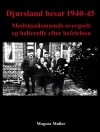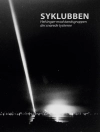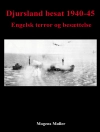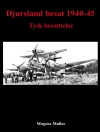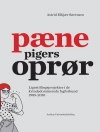Die Krise der Moderne und der auf sie antwortende Modernismus markieren den Übergang vom 19. zum 20. Jahrhundert. Im Ersten Weltkrieg und den sich an ihn anschließenden Revolutionen manifestierten sie sich auf dramatische Weise. Dieses Buch geht den Beziehungen zwischen den neuen sozialen und politischen Entwürfen dieser Zeit – Planungsdenken, Neuer Mensch, totaler Staat – und den künstlerisch-intellektuellen Avantgarden nach, vom italienischen Futurismus über das Bauhaus bis hin zu deren sowjetischen Pendants. Im Zentrum steht dabei die Maschine, die zum Schlüsselbegriff des Modernismus wurde.
Table of Content
Contents
The Individual and the New Man. An Introduction7
Monica Cioli, Maurizio Ricciardi, Pierangelo Schiera
I. From Modernity to Internationalism
The Great European Crisis between Modernity and Modernism21
Pierangelo Schiera
French Artists at the Art Gallery ‘Der Sturm’. Herwarth Walden and German Nationalism
during the 1910s37
Sophie Goetzmann
Splav Meduze (The Raft of the Medusa) by Karpo Godina. Traces of the Avant-Garde
More than Half a Century Later49
Andrea Meyer-Fraatz
Charade of Democracy. From the Crisis of Individual to a Modernist Civilization65
Roberta Ferrari
II. Human Engineering
The Many Lives of the New Man, 1914–194589
Éric Michaud
The Discipline of Freedom. High Modernism and the Crisis of Liberalism107
Maurizio Ricciardi
From Utopian Designs for the New Order to the Ideology of Reconciliation and
Stalinist Humanism129
Eckhart J. Gillen
Between Futurism and Anthropophagy. Transculturation and Postcolonialism143
Francescomaria Tedesco
III. Machine and Order
Machines, War, Mechanical Art, and the City. The Influence of Futurism
on the French Avant-Gardes and their Aesthetics157
Fabio Benzi
At the Origins of Technopolitics. The European Avant-gardes before and after
the First World War175
Monica Cioli
Kazimir Malevich’s Visit to the Staatliches Bauhaus (Dessau) in 1927. Reconstruction
(of the Failure) of an East-West Modernist Encounter195
Anja Schloßberger-Oberhammer
When Socialism was Modern. Gramsci, Stalin and the Post-war Era as ‘Passive Revolution’205
Silvio Pons
Authors219
About the author
Monica Cioli war Fellow des Deutschen Historischen Instituts in Rom und hat an der Universität Trient gelehrt. Maurizio Ricciardi ist Professor an der Universität Bologna. Pierangelo Schiera ist Emeritus an der Universität Trient.



